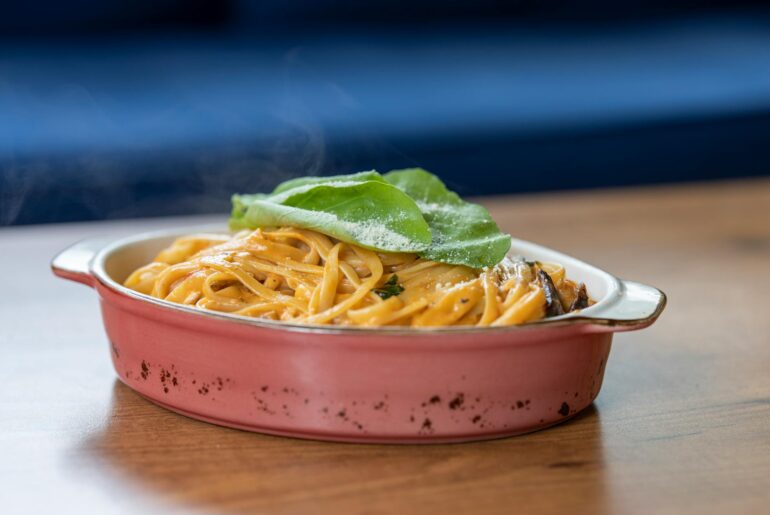Did you know that consuming 4000 calories daily is more common than you might think, considering the average person’s eating habits and energy expenditure?
Many calories from this excessive caloric intake can significantly impact your health and well-being. From weight gain to increased risk of chronic diseases, the effects are profound.
Understanding the implications of such a high-calorie diet is crucial for making informed choices about nutrition and lifestyle. In this post, we delve into the topic of consuming 4000 calories daily and provide insights on how to maintain a balanced and healthy diet.
Key Takeaways
- Plan Your Meals: Create a meal plan to ensure you consume the right amount of calories.
- Choose Nutrient-Dense Foods: Choose healthy and nutrient-rich foods to meet your calorie goals.
- Snack Wisely: Select nutritious snacks like fruits, nuts, or yogurt to control your calorie intake.
- Cook Healthily: Prepare meals using cooking methods that retain nutrients and avoid excessive calories.
- Include Dairy and Eggs: Incorporate dairy and eggs into your diet for essential nutrients without exceeding calorie limits.
- Stay Hydrated: Drink water and choose beverages wisely to manage your calorie intake effectively.
Understanding 4000 Calories
Importance for Fitness
Consuming many calories significantly impacts fitness goals by providing energy for workouts and daily activities. With 4,000 calories, individuals can enhance their workout performance due to increased fuel availability from food. Balancing calorie intake with exercise routines and meal plan is crucial for achieving optimal fitness levels.
Nutrient Breakdown
In a 4,000-calorie diet plan, it’s essential to include all necessary nutrients, such as proteins, fats, carbohydrates, vitamins, and minerals. Macronutrients such as proteins and carbohydrates are vital for energy production and muscle repair. Micronutrients like vitamins and minerals support overall health and well-being when consumed in adequate amounts.
- Proteins aid in muscle building and repair.
- Carbohydrates provide energy for physical activities.
- Vitamins and minerals support various bodily functions.
Achieving Balance
Maintaining a balance between calorie intake and expenditure is key to managing weight effectively daily. Tips for those on a high-calorie diet include regular exercise, portion control, choosing nutrient-dense foods, and monitoring calories. Moderation in calorie consumption is essential to prevent weight gain while still meeting energy requirements.
- Regular exercise helps burn excess calories.
- Portion control prevents overeating.
- Nutrient-dense foods offer essential nutrients without excessive calories.
Meal Planning Strategies
Preparation Instructions
Effective meal preparation strategies for a 4,000-calorie diet involve meticulous planning and organization. Learn about meal planning techniques to ensure you meet your daily caloric goals without feeling overwhelmed. Incorporate time-saving tips like batch cooking and prepping ingredients in advance.
Balanced Meal Ideas can help you reach your 4,000-calorie target while ensuring proper nutrition. Explore creative ways to include nutrient-dense foods such as lean proteins, whole grains, and healthy fats in your meals. Find delicious combinations that offer a mix of macronutrients to support your overall health.
High-Calorie Smoothies
Recipe Guide
Access a variety of recipes tailored for a 4,000-calorie diet to add versatility to your meal plan. Explore different meal options ranging from hearty breakfasts to satisfying dinners, step counting calories. Learn how to create flavorful dishes that are both nutritious and calorie-dense.
Nutrient Content
Understanding the nutrient content of foods is a crucial step for supporting a high-calorie diet effectively. Opt for nutrient-dense options like fruits, vegetables, nuts, and seeds to maximize health benefits. Choose foods rich in essential vitamins and minerals to ensure your body receives the necessary nutrients for optimal functioning.
Healthy Food Selections
Protein-Rich Foods
Protein-rich foods are essential for muscle growth. Including adequate protein in a high-calorie diet offers numerous benefits, including calories. Explore sources like lean meats, eggs, and legumes to meet your daily requirements.
Vegetables and Fruits
Broccoli Cooking Methods
- Steam broccoli to retain its nutrients.
- Roast broccoli with olive oil for a crispy texture.
- Add broccoli to stir-fries or salads for a nutritious boost.
Berry Pairings Guide
- Pair strawberries with dark chocolate for a sweet treat.
- Combine blueberries with Greek yogurt for a healthy snack.
- Mix raspberries into oatmeal for a flavorful breakfast option.
Whole Grains and Nuts
Whole grains and nuts play a crucial role in a high-calorie diet. They offer nutritional benefits such as fiber, vitamins, and minerals. Incorporate options like quinoa, almonds, and walnuts into your meals creatively.
Snack Options and Tips
Banana Snacks
Bananas are versatile fruits that can be enjoyed in various ways to increase your calorie intake. Slice a banana and spread almond butter on top for a quick and satisfying snack. The nutritional value of bananas, rich in carbohydrates and potassium, makes them an ideal high-calorie option. Blending bananas with Greek yogurt and honey creates a creamy and nutritious smoothie for a quick energy boost.
Nutritious Kale Salads
Kale salads offer a nutritious way to incorporate more calories into your diet. Mix chopped kale with quinoa, avocado, and nuts for a filling meal. Rich in vitamins A, C, and K, kale provides numerous health benefits like improved digestion and heart health. Experiment with adding fruits like strawberries or oranges to your kale salad for a refreshing twist.
Celery Usage Tips
Celery can be a surprising addition to your high-calorie meals when used creatively. Stuff celery sticks with cream cheese or peanut butter for a crunchy snack. Known for its low calorie content, celery still offers nutritional benefits such as being high in fiber and antioxidants. Try incorporating celery into stir-fries or soups to enhance the overall flavor profile.
Cooking Healthy Meals
Lean Meat Recipes
Beef Top Loin
Beef top loin offers versatility in high-calorie meal preparation, perfect for those seeking a protein-rich option. Known for its nutritional value, it provides essential nutrients like iron and zinc. Try delicious recipes featuring beef top loin for a satisfying meal.
Cooking Lentils
Learn various cooking methods to prepare lentils for a high-calorie diet. Lentils’ high protein and fiber content can boost nutritional benefits. Explore creative lentil recipes to add variety and flavor to your diet.
Healthy Baking Tips
Baked Potato Toppings
Enhance baked potatoes with a variety of delicious toppings, making them a versatile choice for high-calorie meals. Discover nutritious options like cheese, avocado, or Greek yogurt to complement the potatoes. Customize your baked potato toppings creatively for a fulfilling meal.
Incorporating Dairy and Eggs
Greek Yogurt Benefits
Greek yogurt is a nutrient-dense food that offers various health benefits in a high-calorie diet. With its rich calcium content, it promotes bone health and muscle function. Greek yogurt is packed with protein, aiding in muscle repair and growth.
Including Greek yogurt in your meals provides a significant source of calcium and probiotics, which are beneficial for gut health. Its high protein content also helps you feel full longer, supporting weight management goals. You can enjoy Greek yogurt as a snack, breakfast staple, or as a base for creamy dressings and dips.
Egg-Based Dishes
Eggs are versatile ingredients that can elevate the nutritional value of your meals in a high-calorie diet. They are rich in essential nutrients like vitamins A, D, E, and B12, along with minerals such as iron and zinc. Including eggs in your diet supports brain function and overall well-being.
Incorporating eggs into dishes like omelettes, frittatas, or quiches adds a protein boost to your meal. Eggs are an excellent source of high-quality protein, essential for muscle development and repair. Try experimenting with different egg-based recipes to keep your meals exciting and nutritious.
Hydration and Beverages
Water Intake
Consuming 4,000 calories requires adequate hydration to support digestion and nutrient absorption effectively. Water plays a crucial role in breaking down food and transporting nutrients throughout the body. To maintain optimal hydration levels, aim to drink at least 8-10 glasses of water daily.
Incorporating hydrating foods like fruits and vegetables can also contribute to your overall water intake. These foods not only provide essential nutrients but also help keep you hydrated throughout the day. Monitoring your urine color can be a simple way to assess your hydration status; clear or light yellow urine indicates proper hydration.
Healthy Beverage Choices
When following a high-calorie diet, opt for healthy beverage choices that complement your nutritional needs. Sugary drinks can add unnecessary calories and lead to health issues like weight gain and dental problems. Instead, choose beverages like herbal teas, infused water, or homemade smoothies to support your caloric intake while maintaining good health.
To enhance the flavor of plain water, consider adding slices of fruits or herbs for a refreshing twist. Green tea is another excellent option due to its antioxidant properties and potential benefits for metabolism. By making mindful choices about your beverages, you can support your body’s need for hydration and nutrition.
Practical Consumption Tips
Effective Calorie Tracking
To optimize your fitness journey, learn to track your daily calorie intake accurately. Utilize tools like food journals or apps for monitoring and staying within your caloric limits. Maintaining precise calorie tracking is crucial for achieving your desired fitness goals.
Adjusting Portions
Achieve balance by exploring strategies to adjust portion sizes according to your caloric requirements. Find ways to manage a high-calorie diet effectively through portion control techniques. Optimize meal portions by including a variety of nutrient-dense foods for better calorie management.
Listening to Your Body
Recognize the significance of heeding your body’s signals of hunger and fullness for effective calorie management. Tune in to your body’s cues to regulate calorie intake based on actual needs rather than impulses. Embrace mindful eating practices to promote overall health and well-being.
Final Remarks
Now that you have a better grasp of what 4000 calories entail, along with meal planning strategies, healthy food selections, snack options, cooking tips, and more, you are well-equipped to make informed choices for your daily nutrition. Remember to focus on nutrient-dense foods, stay hydrated, and balance your meals to meet your energy needs effectively.
Incorporating these practices into your routine can lead to improved overall health and well-being. By being mindful of what you consume and how you prepare your meals, you can take significant steps towards achieving your health goals. Start implementing these tips today to make a positive impact on your lifestyle and overall wellness.
Frequently Asked Questions
What does 4000 calories represent?
4000 calories refer to the total energy content in food or beverages. It is a unit of measurement used to quantify the amount of energy your body can obtain from consuming certain foods.
How can I effectively plan my meals around a 4000-calorie diet?
To plan meals for a 4000-calorie diet, focus on nutrient-dense foods like lean proteins, whole grains, fruits, and vegetables. Distribute your calorie intake evenly throughout the day and consider portion sizes to ensure you meet your energy needs.
What are some healthy snack options that fit into a 4000-calorie diet?
Opt for nutrient-rich snacks like nuts, seeds, Greek yogurt, fruit with nut butter, or whole-grain crackers with hummus. These choices provide essential nutrients while helping you maintain energy levels throughout the day.
How can I incorporate dairy and eggs into a 4000-calorie meal plan?
Include dairy products like milk, yogurt, and cheese for calcium and protein. Eggs are also a great source of protein and other essential nutrients. Use them in breakfast dishes, salads, or as part of balanced meals to boost your calorie intake healthily.
Why is hydration important when following a 4000-calorie diet?
Proper hydration is crucial for overall health and helps support digestion, nutrient absorption, and metabolism. Aim to drink an adequate amount of water throughout the day to stay hydrated and optimize the benefits of a 4000-calorie meal plan.










